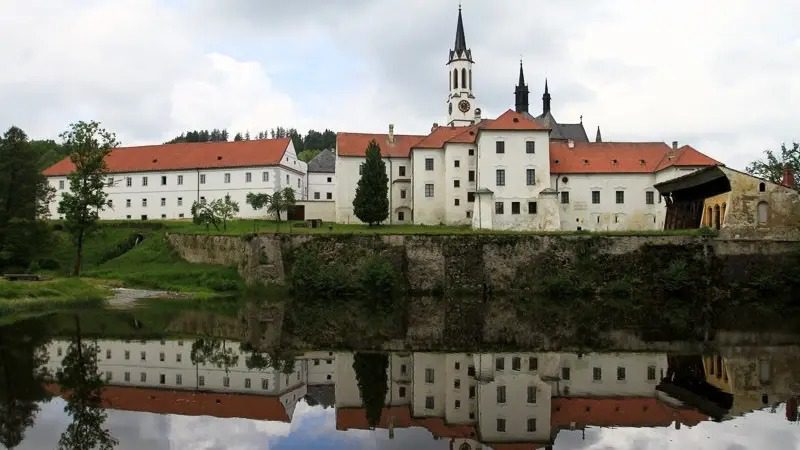In a landmark decision, the Czech Constitutional Court has ruled in favor of the Cistercian Abbey of Vyšší Brod in a dispute over land ownership in South Bohemia. The case, which is part of the ongoing process of church restitutions, will now be returned to lower courts for further clarification.
The Vyšší Brod monastery has a complex history of ownership. During World War II, it was used by Nazis as a storage facility for looted valuables. Post-war, it fell under national administration decrees, with attempts at confiscation. However, the actual expropriation occurred after 1948, through three different methods, leaving the legal basis for state ownership unclear.
Following the fall of communism in 1989 and the return of the monastery building, church restitutions began. However, these did not include the surrounding lands, which had been improperly included in privatization projects. The Cistercian order now seeks to prove that the state owned these lands and that they should have been eligible for restitution claims.
The Constitutional Court found that there had been a violation of the right to a fair trial. It emphasized that even if property was confiscated during the relevant period based on decrees, courts still have an obligation to verify whether this was done legally. In cases of doubt, the state has a duty to proceed according to restitution laws and in line with the legitimate interests of those affected by past injustices.
The Court stressed that unpredictability and the creation of new injustices should not take precedence over the values and principles of a democratic state governed by the rule of law. Lower courts will now need to clarify the legal basis for the confiscation of the claimant’s property and whether the Constitutional Court has previously ruled on this issue.
This ruling builds on previous decisions where the Court had already granted the order claims to other lands in Vyšší Brod and Frymburk. It marks another chapter in the ongoing process of addressing historical injustices and property rights in the Czech Republic.









